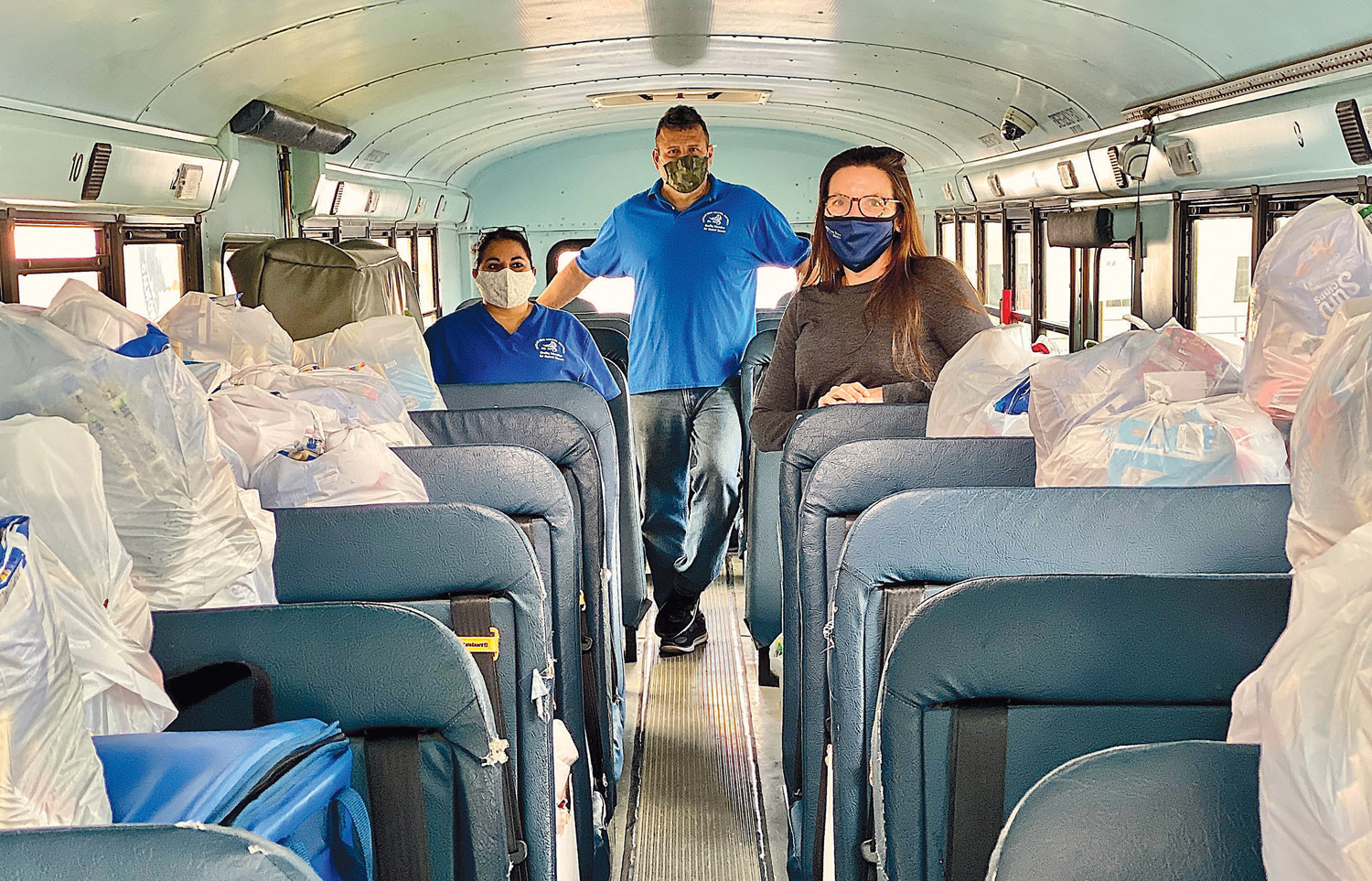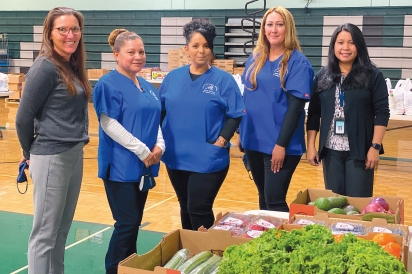Creating Bite-Sized Curricula for Oxnard
Vanessa Zajfen has big plans for breakfast and lunch at Ocean View Elementary School District in Oxnard. A well-seasoned local food “forager,” she’s centering some of Ventura County’s small local farms as part of a new mealtime curriculum.
“We wanted to bridge the cafeteria and classroom, outside the scope of traditional food service,” says Zajfen. Not only is she innovating new educational programs that focus on where our food grows and who’s growing it, but she’s collaborating with Edible Ojai & Ventura County to make it happen.
As of now, Zajfen is envisioning one program with three parts: farmer trading cards; an Edible-branded education booklet (mini magazine) for students, including a recipe for the month that notes where you can find locally grown ingredients in our county; and partnerships with local farmers’ markets. “We will feature local farmers through entrées and salads,” Zajfen explains, “with supplemental info for the students and teachers.”
Zajfen hopes to turn the farmer trading cards into posters that could hang in cafeterias. “We’ve received some funding from the California Department of Food and Agriculture’s Office of Farm to Fork, but we are seeking additional funding to allow for redemption of the farmer trading cards at area farmers’ markets,” she says, adding that she’s partnering with Edible Ojai & Ventura County to design and print materials.
“This will all run through our breakfast-in-the-classroom program, where we hope to provide farm-to-school placemats from which students will eat and original video content to play during breakfast service in the classroom.” But that, like most nonprofit projects, will come down to funding.
A sustainable agriculture advocate at heart, “I was always acutely aware of where and how food was being produced,” Zajfen says. Ocean View made the transition from “heat and serve” long before Zajfen arrived, and had already eliminated Styrofoam and single-use plastics. “My predecessor helped with culinary arts training that allowed the kitchen to cook from scratch,” she says. The groundwork Ocean View already had in place allowed her to expand local and organic food sourcing.
Much of it is a numbers game. Zajfen reviews overall food costs and tries to find new approaches to the budget that allow the district to buy better-quality, locally sourced ingredients. Balancing food costs across the menu and utilizing some USDA foods helps Ocean View afford to buy products like local burger meat from Watkins Ranch, for example.
Zajfen finds flexible ways to build in these ingredients, such as buying imperfect produce that local farmers might not be able to sell otherwise but is still delicious and full of the nutrition kids need. Smart sourcing helps both local agriculture and her budget. “I can accept green oranges that have not been gassed and serve them because we can slice them,” says Zajfen. “It takes thinking outside the box.”
The COVID-19 pandemic challenged schools all over the country to rethink how to meet the needs of their students. Zajfen had just started at Ocean View in November 2019, and by March the school district, like so many others, had shut down in-person instruction.
In the midst of the chaotic early days of the pandemic, Zajfen worked with the district to pivot the breakfast and lunch program by instead sending home bags of bulk food items to make meals at home each week. “Sometimes teachers will ask to slip something in the bags to the kids,” she says, and sometimes she adds coloring books as well.
One of the best ideas that came out last spring was the decision to deliver the bulk food supplies to students, which allowed the school district to reach 90% of their population with boxes of pasta, heads of lettuce and many more of the bulk ingredients that would have been used to make school meals. “Everyone feels good about this particular program,” she says.
The USDA has given food service departments waivers that help districts to adapt to these unprecedented circumstances. In response, Zajfen has been able to expand her procurement and bring in local farms and organizations like Farmivore to sell to the district.
“Farmivore has helped reach out to local farmers like Laubacher, John Givens, Rancho La Familia and more. We’re building them into traditional procurement channels.”
Zajfen works alongside other area school districts as part of the Ventura County Farm to School Collaborative, which began in 2012 as an effort to get more local and organic products into schools. The school district is also part of the Center for the Good Food Purchasing Program, which measures how much money is spent on good food (local, organic, healthy, fair), including local.
She’s hopeful that by developing the new curriculum, Ocean View can help students understand how remarkable it is to be eating fresh produce from local community farms in their breakfasts and lunches.
If you are interested in helping to sponsor the Edible Education program for OVSD, please email info@edibleventuracounty.com.






